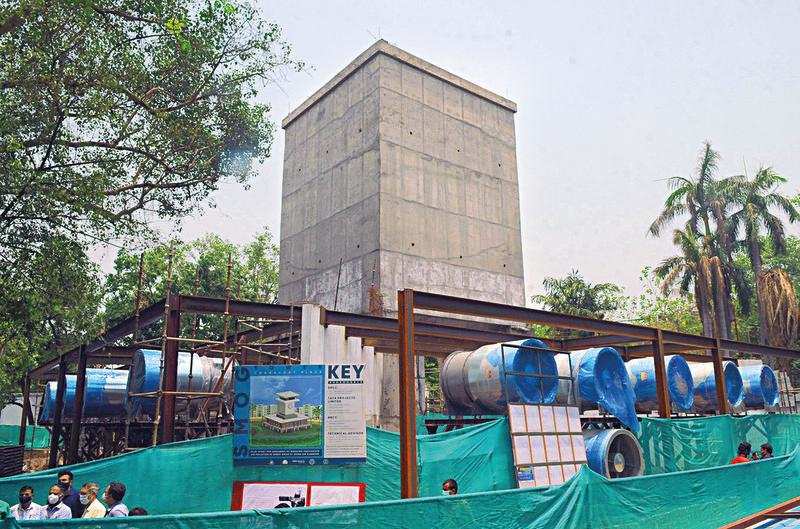
NEW DELHI: The anti-smog tower in Connaught Place is complete and expected to be inaugurated by August 15.
However, a two-year pilot study to check its effectiveness will commence from August 12 with both IIT Delhi and Bombay testing its efficacy in bringing down PM 2.5 and PM 10, an official said.
Delhi Pollution Control Committee (DPCC), which is overseeing the work, said the structure was ready, however, delays to begin testing occurred due to rains in the past two weeks, leading to waterlogging around the smog tower and its access road. Testing is now set to commence around August 12, with initial data to be analysed by DPCC before a monthly report is released.
DPCC said the project duration was set at two years and 10 months, with 10 months fixed to set up the tower. Following this, a pilot study was to begin, which would analyse the effectiveness of the tower.
“IIT Bombay carried out a preliminary testing, but this was all done in the lab. The actual on-ground testing and data will only be produced from next week. All components have been assembled and the smog tower is ready to function,” said a DPCC official.
The pilot study aims to determine how the tower will perform under different atmospheric conditions and times of the year, DPCC said. “We will be able to determine how big its radius is and how much reduction is occurring every hour in terms of PM 2.5 and PM 10. There will be a concrete data, which will be analysed monthly,” said an official.
The tower, which is slated to be over 20-metres in height, was approved at a cost of Rs 20 crore by Delhi Cabinet in October last year to improve the air quality in a radius of around 1km, the official said. It is being built in collaboration with IIT Bombay and University of Minnesota.
Last month, a second smog tower – funded by the Centre and built by Tata Projects in collaboration with the University of Minnesota — was also inaugurated and is expected to become operational around the same time. The Anand Vihar smog tower stands at a height of 25 metres and has been built using Adaptive Clean Air Network (ACAN) technology, which can influence an area of 1 sqkm, the official said. Tata Projects said the total air flow through ACAN was estimated to be 960 m3/s, with a system filtration efficiency of 90%.







